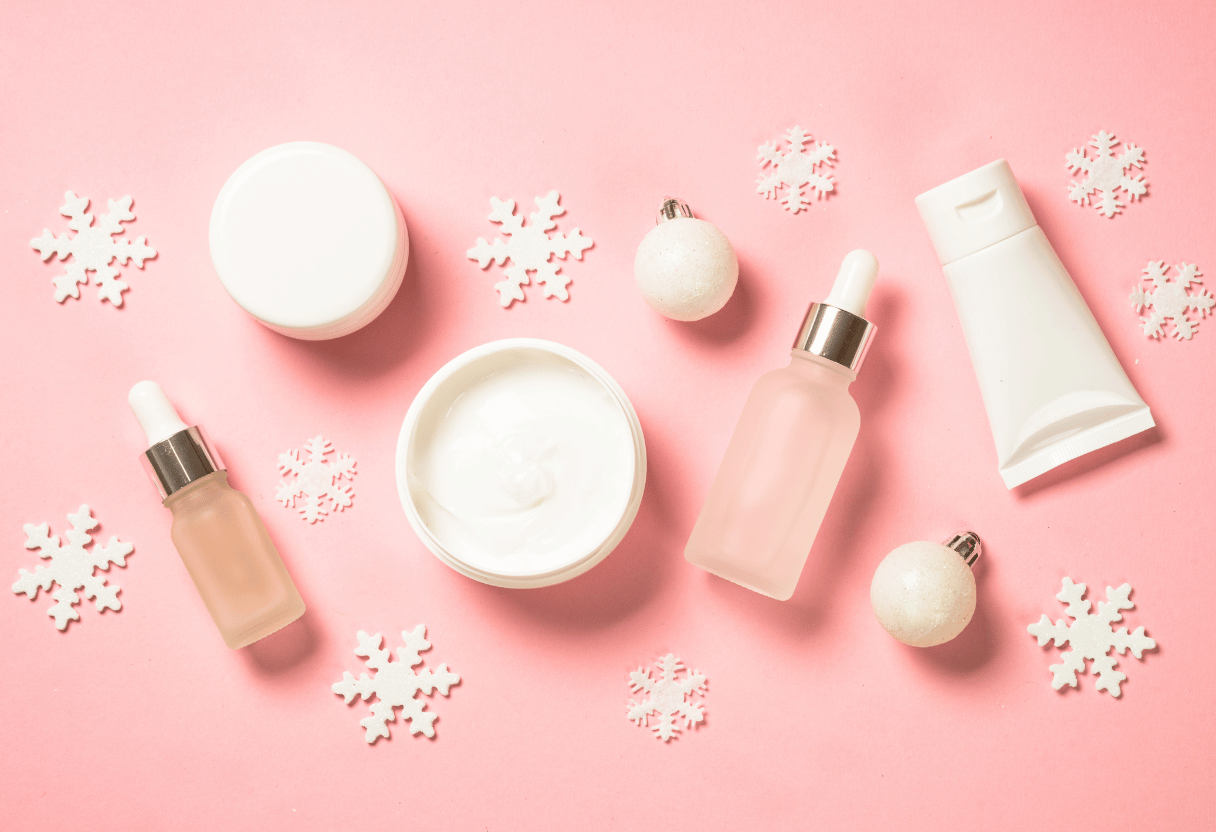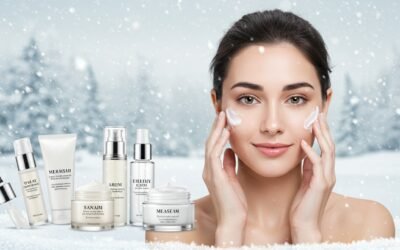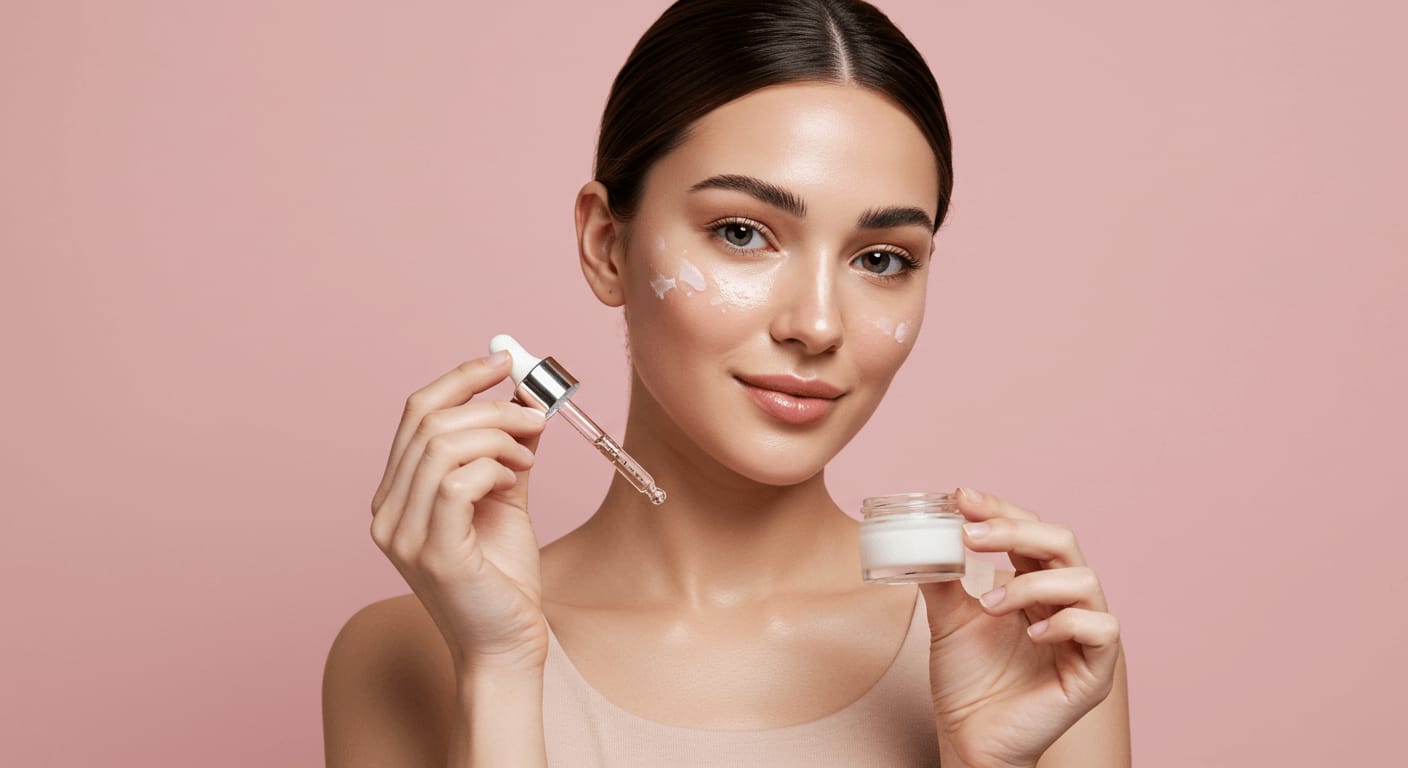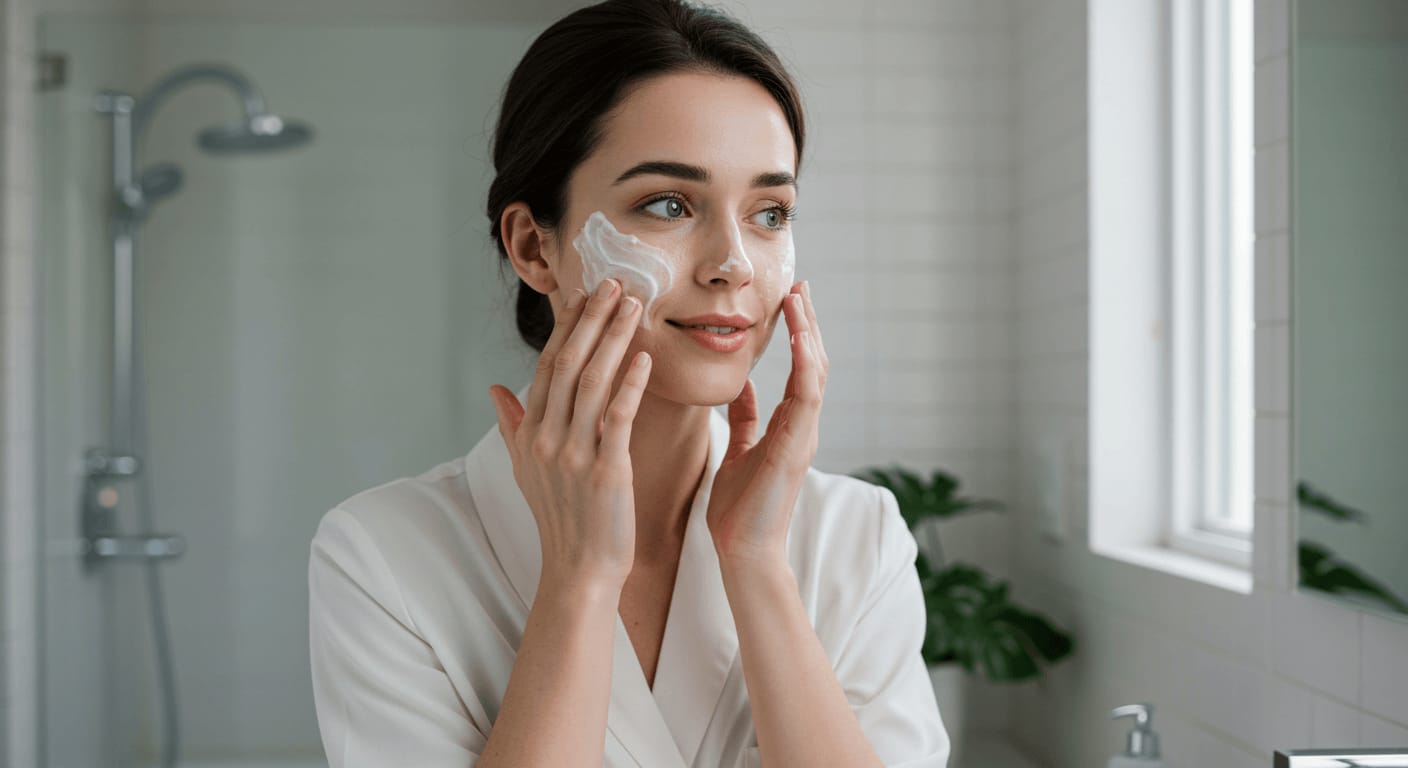Moisture retention is necessary for healthy skin, especially during the harsh winter months. As temperatures drop, your skin can become dry and irritated, leading to a compromised moisture barrier. This guide will equip you with effective strategies to protect and nourish your skin, ensuring it stays hydrated and resilient. By understanding how to maintain your skin’s moisture barrier, you can avoid discomfort and enhance your overall skin health throughout the winter season.
Table of Contents

Maintaining Your Skin’s Moisture Barrier in Winter.
Key Takeaways:
- Hydration: Ensure adequate hydration by drinking plenty of water to support your skin from the inside out.
- Moisturizers: Choose a thicker moisturizer that contains occlusives and humectants to effectively lock in moisture and protect your skin’s barrier.
- Gentle Cleansing: Use a gentle, non-foaming cleanser to avoid stripping natural oils from your skin.
- Humidifiers: Consider using a humidifier indoors to add moisture to the air and combat dry winter conditions.
- Sun Protection: Don’t skip sunscreen; UV damage can still occur in winter, which can weaken your skin’s moisture barrier.
Understanding the Skin’s Moisture Barrier
Your skin’s moisture barrier plays a pivotal role in maintaining overall skin health. It consists of a complex network of lipids and proteins that create a protective layer on the skin’s surface, essential for preventing moisture loss and shielding against environmental stressors. A well-functioning moisture barrier not only retains water, keeping the skin hydrated, but also acts as a defense mechanism against irritants and pathogens.
When compromised, it can lead to issues such as dryness, irritation, and increased sensitivity. To strengthen and repair your moisture barrier, explore 7 Best Barrier-Repair Creams for Healthy Skin.
For more information on how to maintain a healthy barrier, check out 5 Tips for Strengthening Your Skin’s Moisture Barrier. By understanding the importance of this protective layer and taking the right steps to care for it, you can ensure your skin remains resilient, hydrated, and glowing.
Types of Skin Moisture Barriers
There’s a variety of moisture barrier types that can influence how your skin responds to environmental elements. Each type operates differently based on its composition and functionality. Below is a breakdown of the different types of moisture barriers:
- Stratum Corneum: Outer layer of the skin primarily responsible for barrier function.
- Natural Moisturizing Factor (NMF): Water-soluble components that help retain moisture.
- Keratin: Proteins that contribute to the skin’s impermeability.
- Lipids: Fatty substances that create a barrier against water loss.
- Glycerin: A humectant that draws moisture into the skin.
The effectiveness of these barriers can vary depending on numerous factors, which can ultimately influence your skin’s hydration levels. For products designed to support these barriers, check out 7 Best Moisturizers for Strengthening Skin Barriers.
Factors Affecting Moisture Retention
If you’re seeking to maintain optimal skin hydration, understanding various factors that influence moisture retention is vital. Environmental conditions, such as low humidity during winter months, play a significant role in moisture loss. Additionally, factors such as aging, skincare routines, and lifestyle choices can either support or degrade your moisture barrier, leading to varying skin conditions. Below are some key elements that can affect moisture retention:
- Humidity Levels: Low humidity can lead to increased moisture loss.
- Age: Aging skin tends to lose moisture more quickly.
- Skin Type: Different skin types may have varying moisture retention capabilities.
- Products Used: Harsh products can strip moisture from the skin.
- Lifestyle Factors: Diet and hydration levels can also impact skin moisture.
To counteract these influences, consider using products enriched with ceramides, glycerin, or hyaluronic acid. For ideas, explore Top 5 Hydrating Products for Winter Skincare.
Moisture retention is influenced by various internal and external factors that you may not even realize. For instance, exposure to air conditioning during winter months can significantly dry out your skin. It’s also important to recognize how stress, diet, and hydration balance can impact your skin’s ability to retain moisture. The regular use of moisturizers that suit your skin type can help fortify this barrier, but be mindful of the ingredients you choose—avoid those with synthetic fragrances and alcohol, as they can worsen dryness. For tips on building a better routine, visit 7 Steps to Improve Skin Hydration Naturally.

Essential Tips for Winter Skin Care
Even during the colder months, maintaining your skin’s health is imperative. The right winter skin care routine can help you to preserve your skin’s moisture barrier and prevent dryness. Here are some imperative tips to keep in mind:
- Use a humidifier in your home to add moisture back into the air.
- Opt for a gentle cleanser that won’t strip your skin of its natural oils.
- Limit hot showers, as they can draw moisture away from your skin.
- Apply your moisturizer immediately after washing your face or showering.
- Incorporate a nourishing oil into your routine for an added moisture boost.
Recognizing the importance of each of these practices can significantly improve your skin’s resilience against winter’s harshness.
Hydration Techniques
The key to combating winter dryness lies in proper hydration techniques. Drink plenty of water throughout the day to keep your body hydrated from the inside out. Additionally, you may want to consider hydrating facial mists or serums that provide quick moisture relief, especially if you work in a dry environment. For the best options, explore 7 Best Hydrating Serums for Winter Skin.Moreover, try incorporating facial masks into your weekly routine. Opt for hydrating masks that contain ingredients like hyaluronic acid or aloe vera, which can help quench your skin’s thirst and deliver lasting hydration. Your skin will thank you for the extra pampering during this demanding season. For recommendations, check out Top 5 Hydrating Masks for Dry Skin.
Moisturizing Ingredients to Look For
Some of the most effective ingredients to seek out in your winter skincare products include ceramides, glycerin, and occlusives like petrolatum or shea butter. These ingredients work together to create a protective layer on your skin, ensuring that moisture isn’t lost and enhancing your skin’s natural barrier. For ceramide-rich options, consider 5 Best Ceramide Moisturizers for Winter.Essential to your winter skincare routine is understanding what goes into the products you apply to your skin. Ingredients such as hyaluronic acid are excellent for drawing moisture into your skin, while ceramides help develop and maintain your skin’s natural moisture barrier. Additionally, emollients like squalane can help soften your skin, providing much-needed relief from the winter chill. For more insights, read 7 Ingredients to Look For in Winter Skincare. Always check the product labels and choose wisely — your skin will greatly benefit from the right choices.
Step-by-Step Guide to Maintaining Your Moisture Barrier
For maintaining your skin’s moisture barrier during the winter months, it’s important to have a structured approach. Following a clear routine can significantly enhance your skin’s ability to stay hydrated and comfortable. Below is a table outlining key steps and tips to integrate into your daily skincare regimen…
| Step | Description |
|---|---|
| 1. Gentle Cleansing | Use a mild, hydrating cleanser to remove impurities without stripping natural oils. |
| 2. Exfoliation | Exfoliate once a week to remove dead skin cells but avoid over-exfoliating which can damage the barrier. |
| 3. Hydrating Toner | Apply a hydrating toner to replenish moisture immediately after cleansing. |
| 4. Moisturizing | Use a rich, nourishing moisturizer to seal in hydration. |
| 5. Sun Protection | Even in winter, your skin needs protection from UV rays. |
Daily Routine for Winter Skin Care
For a successful daily skincare routine, focus on gentle cleansing and effective moisturization. Start your mornings with a hydrating cleanser, followed by a nourishing toner that prepares your skin for the moisture that follows. After applying your moisturizer, don’t forget to top it off with sunscreen, which protects your skin from UV damage, even on cloudy days. For top recommendations, explore 7 Best Hydrating Cleansers for Winter.
It’s important to choose products designed to support your skin’s moisture barrier. Look for ingredients like hyaluronic acid, glycerin, and ceramides in your skincare. These ingredients help attract and retain moisture, giving your skin the hydration it desires during the cold winter months. For tips on building an effective daily routine, check out 5 Steps to Winter-Proof Your Skin.
Nighttime Regimen for Optimal Results
Nighttime becomes a wonderful opportunity for your skin to recuperate and rebuild. As you wind down for the day, focus on cleansing away dirt and grime without over-drying your skin. Use a gentle cleanser and follow up with a hydrating serum that can work overnight to deliver important nutrients to your skin. Consider trying Top 5 Overnight Serums for Winter Skin Repair.
Incorporating a rich, occlusive moisturizer or a sleeping mask at night can help lock in moisture while you sleep. This step is vital for maintaining a healthy moisture barrier, as your skin’s permeability increases during the night, allowing it to absorb these nourishing ingredients effectively. For product ideas, explore 7 Best Sleeping Masks for Hydrated Winter Skin. By adhering to a thoughtful nighttime regimen, you can wake up with soft, plump skin ready to face another winter day.

Pros and Cons of Different Moisturizing Products
After assessing the various factors that contribute to maintaining your skin’s moisture barrier during winter, it’s important to understand the pros and cons of different moisturizing products available. Each type of product has its unique benefits and drawbacks, making it important to choose what works best for your skin type and environment. Below is a comparative breakdown to help you make an informed decision:
Pros and Cons of Moisturizers
| Type | Pros | Cons |
|---|---|---|
| Lotions | Lightweight, easy to apply | May not provide long-lasting hydration |
| Creams | Richer texture, better for dry skin | Can feel heavy or greasy |
| Ointments | Excellent for severely dry skin, occlusive properties | May cause breakouts on acne-prone skin |
| Gels | Fast-absorbing, refreshing | May not hydrate as deeply as creams/ointments |
| Natural oils | Rich in nutrients, good for moisture retention | Can be comedogenic (clog pores) |
| Humectants | Draw moisture to the skin | Requires humidity to be effective |
| Serums | Concentrated ingredients, targeted benefits | Higher cost, may need additional moisturizing product |
| DIY options | Customizable, can use natural ingredients | Risk of irritation, effectiveness may vary |
Creams vs. Ointments
Creams are popular among many for their versatility and ability to hydrate without feeling overly greasy. They typically contain a combination of oils and water, making them suitable for a range of skin types. You might find that creams strike a balance between providing moisture and feeling lightweight, making them ideal for daily use, particularly in winter when your skin craves additional hydration. To find the perfect cream, explore 7 Best Moisturizing Creams for Winter Hydration.
On the other hand, ointments are often thicker and contain a higher concentration of oils, which makes them incredibly effective for sealing in moisture. They are ideal for those with severely dry skin or conditions like eczema. Ointments create a barrier that not only locks in hydration but also protects your skin from environmental factors. However, they can feel greasy, making them less appealing for everyday use or for those prone to acne. Assess your skin’s needs and choose accordingly to ensure optimal skin health. For suggestions, check out Top 5 Ointments for Dry and Sensitive Skin.
Natural vs. Synthetic Ingredients
On your journey to maintain your skin’s moisture barrier, it’s important to consider the ingredients in your moisturizing products. Natural ingredients, such as aloe vera, shea butter, and jojoba oil, are often touted for their gentle and nourishing properties. They are typically well-tolerated by most skin types and can provide beneficial vitamins and antioxidants. For product ideas, explore 7 Best Natural Moisturizers for Healthy Skin.
Conversely, synthetic ingredients, like petrolatum and dimethicone, can offer excellent occlusive properties and effectiveness in retaining moisture. However, these may cause irritation or adverse reactions in some individuals, particularly those with sensitive skin. You must analyze your individual skin type and preferences to decide which type of ingredient aligns best with your moisturizing needs. For tips on choosing between natural and synthetic options, read 5 Key Differences Between Natural and Synthetic Skincare Ingredients.
Moisturizing with natural ingredients brings the advantage of potentially fewer side effects and enhanced skin benefits, yet it’s important to be aware of their sourcing and purity. Some natural products may still contain irritants or allergens, making it vital to conduct a patch test before full application. At the same time, synthetic options can provide stronger hydration and barrier protection but could also lead to reactions in sensitive individuals. Understanding these nuances will empower you to choose the right products for your skin type and the winter season.
Common Mistakes to Avoid
Keep your skin healthy this winter by avoiding common mistakes that can compromise your skin’s moisture barrier. Staying informed about effective strategies can make a significant difference. For valuable Tips and Tricks for Combatting Dry Skin, ensure you are nurturing rather than damaging your skin’s natural defenses. Small changes in your routine can lead to more supple and resilient skin, even in the harshest of winters.
Over-Exfoliating
On your journey to maintaining your skin’s moisture barrier, one common pitfall is over-exfoliating. While removing dead skin cells is beneficial, doing it too frequently can strip away important oils, leaving your skin vulnerable and dry. Aim for a balanced approach; exfoliating once or twice a week is typically sufficient for most skin types. If you notice redness or irritation, it might be a sign you’re exfoliating too often. For effective options, explore 5 Best Gentle Exfoliants for Sensitive Skin.
You must also pay attention to how you exfoliate. Opt for gentle exfoliants, and avoid harsh scrubs that can cause micro-tears in your skin. Instead, consider chemical exfoliants such as AHAs and BHAs, which can provide effective ways to enhance your skin’s texture without unnecessary damage. The right exfoliation technique not only preserves your skin’s hydration but also promotes a glowing complexion. For more tips, check out Top 7 Exfoliation Practices for Healthy Skin.
Neglecting Protection Against Environmental Factors
Mistakes often occur in winter when the need for protection against environmental factors is overlooked. You may think that with indoor heating and a lack of sunlight, your skin won’t suffer as much, but cold air and dry indoor environments can still have adverse effects. Failing to protect your skin from harsh conditions can lead to increased dryness and irritation. Make it a habit to wear protective items, such as scarves and hats, when stepping outside to shield your face from the elements. For suggestions, explore 7 Must-Have Winter Skin Protection Products.
- Use a humidifier in your home to add moisture back into the air.
- Apply a thicker moisturizer before heading outside to seal in hydration.
- Sunscreen is still a must, even on cloudy winter days.
Additionally, you should be mindful of how indoor air can draw out moisture from your skin, exacerbating dryness. The following practices can enhance your skin’s moisture retention and provide better protection:
- Choose gentle, hydrating cleansers instead of drying soaps.
- Limit hot showers, which can strip oils from your skin.
- Regularly apply moisturizer after bathing, while your skin is still damp.
The key takeaway here is to adopt a holistic approach to skincare during winter that prioritizes your skin’s moisture barrier. For more advice on winter skincare, visit 5 Steps to Protect Your Skin in Winter.
Expert Recommendations and Product Suggestions
Now that you understand the importance of maintaining your skin’s moisture barrier during the winter months, it’s time to explore recommendations from skincare experts and the products they endorse. Generally, dermatologists suggest opting for a thicker, occlusive moisturizer that traps hydration effectively. Brands containing ceramides, hyaluronic acid, and glycerin are particularly potent, bolstering your skin’s natural moisture levels. For comprehensive guidance, you can refer to this article on How to Keep Skin Hydrated in Winter which offers tailored advice for your skincare routine.
Dermatologist-Approved Products
An excellent way to enhance your winter skincare regimen is by integrating dermatologist-approved products into your daily routine. Look for moisturizers that are labeled as non-comedogenic to avoid clogging your pores while providing the necessary moisture. Brands like Cetaphil, CeraVe, and Aquaphor are widely recommended due to their effective formulations, which help strengthen your skin barrier while providing lasting hydration. For top recommendations, explore 7 Best Dermatologist-Approved Moisturizers for Winter.
Additionally, incorporating a weekly hydrating serum can significantly elevate your skin’s moisture levels during harsh winter conditions. To find the best serums for this season, check out Top 5 Hydrating Serums Recommended by Dermatologists.
DIY Moisturizing Treatments
If you prefer a natural approach, DIY moisturizing treatments can be both fun and beneficial for your skin. Simple recipes using ingredients like coconut oil, aloe vera, and honey can create effective hydrating masks or moisturizers. For example, mixing equal parts of coconut oil and aloe vera can provide a soothing and hydrating solution to dry skin patches. For inspiration, explore 5 Best DIY Moisturizing Recipes for Winter.
Understanding various DIY treatments allows you to embrace the power of natural ingredients while safeguarding your skin’s barrier in the winter. By utilizing products that are naturally rich in moisture, you not only enhance your skin’s hydration but also support overall health. Always perform a patch test first, especially if you have sensitive skin, to mitigate any potential adverse reactions. For more safety tips, read 7 Tips for Safely Using DIY Skincare Treatments. This way, you can enjoy the benefits of hydrating your skin without compromising its health.
Final Words
Considering all points, it is necessary to prioritize the maintenance of your skin’s moisture barrier during the winter months. The cold air, combined with indoor heating, can strip your skin of its natural oils and lead to dryness and irritation. You can combat these effects by adopting a tailored skincare routine that includes the use of hydrating cleansers, nourishing moisturizers, and regular application of serums that cater to your skin’s needs. For top recommendations, explore 7 Best Winter Skincare Products to Protect Your Barrier.
By choosing products rich in ceramides, hyaluronic acid, and glycerin, you can effectively restore and protect your skin’s moisture barrier while retaining necessary hydration throughout the season. For ideas on serums, check out Top 5 Hydrating Serums to Boost Winter Skin.
Moreover, your lifestyle choices play a significant role in maintaining skin health. Staying hydrated by drinking plenty of water, using a humidifier in your home, and protecting your skin from harsh weather conditions can make a significant difference. For additional tips, read 5 Lifestyle Hacks for Healthy Winter Skin.
When you take these steps, you empower your skin to resist dryness and enhance its resilience against winter’s challenges. By being proactive and attentive to your skin’s needs, you can ensure a healthy, hydrated complexion all winter long. For more tips on maintaining hydration, visit 7 Ways to Keep Your Skin Hydrated in Winter.
FAQ
Q: Why is the moisture barrier important for my skin in winter?
A: The moisture barrier acts as your skin’s first line of defense against environmental factors. In winter, cold air and low humidity can strip away moisture, leading to dryness, irritation, and conditions like eczema. By maintaining a healthy moisture barrier, your skin stays hydrated and protected, reducing the likelihood of these issues. For tips, read 7 Steps to Protect Your Skin Barrier in Winter.
Q: How can I tell if my moisture barrier is damaged?
A: Signs of a damaged moisture barrier include persistent dryness, redness, flaky or peeling skin, increased sensitivity, and breakouts. If you notice these symptoms, it may indicate that your skin’s barrier is compromised, making it important to adopt practices to repair and maintain it. For solutions, check out Top 5 Signs of a Damaged Skin Barrier and How to Repair It.
Q: What products should I use to support my moisture barrier during winter?
A: Look for moisturizers that contain ingredients like ceramides, hyaluronic acid, and glycerin, which help replenish moisture. Emollients like shea butter or oils can also provide a protective layer, helping to lock in hydration. Avoid products with harsh alcohols or fragrances that can irritate and further damage the barrier. Explore 7 Best Winter Moisturizers for Healthy Skin for product recommendations.
Q: How often should I apply moisturizer in winter?
A: It is advisable to moisturize your skin at least twice a day: once in the morning and once before bedtime. Additionally, consider applying moisturizer after bathing or washing your hands, when your skin is still damp. This practice allows for better absorption of moisture and creates an effective barrier against cold, dry air. For detailed advice, read 5 Tips for Proper Moisturizing in Winter.
Q: Are there lifestyle changes I can make to help maintain my skin’s moisture barrier in winter?
A: Yes, adjusting your lifestyle can significantly impact your skin’s moisture retention. Stay hydrated by drinking plenty of water, use a humidifier to add moisture to indoor air, and dress in layers to protect against cold winds. Also, limit long hot showers, as they can further dehydrate your skin. For additional guidance, visit Top 7 Lifestyle Changes for Winter Skin Protection.



























0 Comments